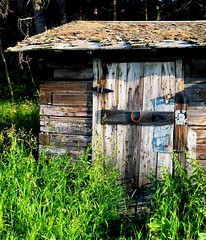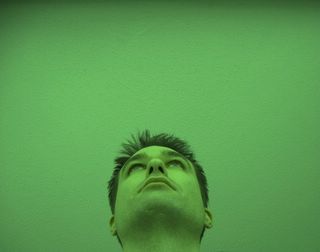
I finished “The Book Thief,” by Markus Zusak, and immediately started reading it again. When I come across a book that achieves something unusual, I like to read it twice: once as a reader, and second as a writer. That second reading allows me to try to see how he does it, not that this will reveal all of the young Aussie’s tricks.
What is unusual about this book? The first thing: you wouldn’t expect a book narrated by Death himself, about Nazi Germany and a foster girl’s family hiding a Jew in their basement, to capture so much beauty. The dichotomy of humankind, the capability for both brute ferocity and tenderness all within one species, in one country, in one city during an infamous moment of time…well, it even makes Death take notice: “I am constantly overestimating and underestimating the human race—that rarely do I ever simply estimate it. I wanted to ask her how the same thing could be so ugly and so glorious, and its words and stories so damning and brilliant.”
Zusak sums up what the book will be about on the fifth page:
“It’s just a small story really, about, among other things:
* A girl
* Some words
* An accordionist
* Some fanatical Germans
*A Jewish fist fighter
*And quite a lot of thievery”
The girl is a nine-year-old foster child named Liesel, given up by her Communist mother to stay with a couple in a small town outside Munich. Her younger brother dies on the train, and it is during her brother’s burial that she steals her first book, “The Grave Digger’s Handbook.” She doesn't even know how to read yet, but she senses the power of books and how they will hold the key to what is happening to her.
Her foster mother is a squat, harsh woman with a penchant for swearing, who holds within her a combination of both cruelty and love, in keeping with the book’s theme. Her foster father, however, is all kindness, spreading a quiet calm around him. “When he turned the light on in the small, callous washroom that night, Liesel observed the strangeness of her foster father’s eyes. They were made of kindness, and silver. Like soft silver, melting. Liesel, upon seeing those eyes, understood that Hans Hubermann was worth a lot.”
He sits up with her after she awakens from nightmares, and at her request, teaches her to read with her first stolen book, “The Gravediggers Handbook.” With her faithful friend Rudy—a boy that always tries to negotiate a kiss from her—she goes on to steal several other books from the unlikely sanctuary of the Mayor’s personal library. It is not until after her foster parents hide a runaway Jew in their basement that words break free from their books and become a tool in her hands for capturing and understanding the world around her.
She tries to bring to him the beauty of the outside world. “The sky is blue today, Max, and there is a big long cloud, and it’s stretched out, like a rope. At the end of it, the sun is like a yellow hole…” As Death describes it, “The words were on their way, and when they arrived, Liesel would hold them in her hands like the clouds, and she would wring them out like the rain.”
The aware reader will also notice the concentric circles of what is going on here, the matryoshka dolls each tucked one within the other. While Leisel is discovering the power of words, so too is the author, in this rare experience of writing a book that would soon capture the world’s attention. Zusak’s short, staccato rhythm of words might first distract the reader, but after about ten pages, I began feeling the effect. Short blasts, like gunshots, but impactful:
“That last time.
That red sky…
How does a book thief end up kneeling and howling and flanked by a man-made heap of ridiculous, greasy, cooked up rubble?
Years earlier, the start was snow.
The time had come. For one.
***A SPECTACULARLY TRAGIC MOMENT***
A train was moving quickly.
It was packed with humans.
A six-year-old boy died in the third carriage.”
It was during my second reading of the book that I could truly appreciate the care with which Zusak rewrote the later drafts of his novel, with that omniscient knowledge of all that would come later and weaving it into the story. He excuses this prescience with the vehicle of Death as narrator. For many readers, this broken timeline may be confusing and frustrating, but for others it will add another layer of meaning to the text. Poignant, bitter sweet scenes colored with the knowledge of what will come.
Before each part or chapter, it is like Zusak shares with us his outline:
“PART EIGHT
The word shaker
Featuring:
dominos and darkness—the thought of
rudy naked—punishment—a promise keeper’s
wife—a collector—the bread eaters—
a candle in the trees—a hidden sketchbook—
and the anarchist’s suite collection”
Humans are capable of great beauty and brutality. So too are words. On one hand, words are used by Hitler’s “Mein Kampf” to spread the Nazi propaganda, while on the other, Liesel’s stolen books provide her with grateful escape. In the Mayor’s library, she sits among a pile of “the lovely books and their manicured titles. It brewed in her as she eyed the pages full to the brim of their bellies with paragraphs and words.
You bastards, she thought.
You lovely bastards.
Don’t make me happy. Please, don’t fill me up and let me think that something good can come of any of this.”
She comes to learn, as she starts to write down her own experience in a notebook that she will title “The Book Thief,” that words are not meant to make the world beautiful or ugly. “I have hated the words and I have loved them, and I hope I have made them right.”
Those are Liesel’s words, but they are also Zusak’s. In an
interview with the author, he explains how the book is about trying to find beautiful moments in an ugly time. Inspired by a family story about a German boy giving a piece of bread to an old Jew being marched through the town, he explains, “On one hand, you've got pure beauty, which is the boy giving the bread, and on the other you've got pure destruction, which is the soldier whipping the old man for taking the bread. You put those two things together, and you've got humans."
 After he bought a 1920’s Cape Code style home, he felt impelled to install hidden doors, miniature windows looking onto bonsai gardens, figurines of elves and gnomes perched in the many nooks and crannies particular to older homes. Things fantastical, mythical, or just a little kooky. He remembered a visit to his aunt’s house once as a child, with overgrown apple trees crowding the windows with their limbs. Looking out the kitchen window, he could see a wiry bird’s nest on the crook of a branch, with a half eggshell and a rubbery looking chick popping its head out. He stared and stared, but the chick never moved. “It’s fake, isn’t it?” he asked doubtfully. “Oh no,” his aunt said. “It’s real. See, he just blinked.” His older cousins backed up her story. “Oh, it’s real alright,” they snickered. He checked on the baby chick every morning to see if it had moved yet, until finally his brother said “Don’t be a dumbass, its rubber. Can’t you see that?” But his aunt immediately came to his defense, “Oh no. It’s real. See, it moved its wing,” and she winked at him, as though the fact that it was real was their little secret.
After he bought a 1920’s Cape Code style home, he felt impelled to install hidden doors, miniature windows looking onto bonsai gardens, figurines of elves and gnomes perched in the many nooks and crannies particular to older homes. Things fantastical, mythical, or just a little kooky. He remembered a visit to his aunt’s house once as a child, with overgrown apple trees crowding the windows with their limbs. Looking out the kitchen window, he could see a wiry bird’s nest on the crook of a branch, with a half eggshell and a rubbery looking chick popping its head out. He stared and stared, but the chick never moved. “It’s fake, isn’t it?” he asked doubtfully. “Oh no,” his aunt said. “It’s real. See, he just blinked.” His older cousins backed up her story. “Oh, it’s real alright,” they snickered. He checked on the baby chick every morning to see if it had moved yet, until finally his brother said “Don’t be a dumbass, its rubber. Can’t you see that?” But his aunt immediately came to his defense, “Oh no. It’s real. See, it moved its wing,” and she winked at him, as though the fact that it was real was their little secret.

